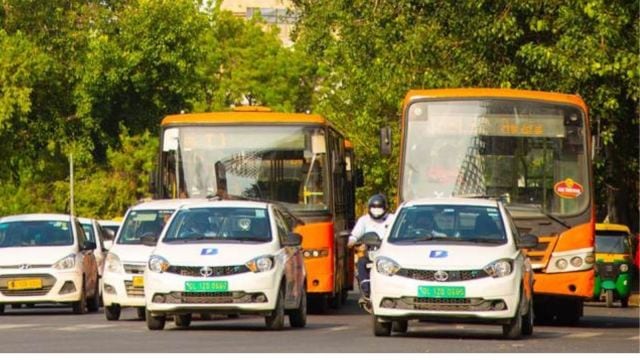Why Union Budget 2024 is a mixed bag for EV makers, buyers in India
Measures to drive EV adoption were absent from the Union Budget 2024-25, but there was some good news too.
 Here’s how the Union Budget 2024-25 could impact the nascent EV industry in India. (File Image)
Here’s how the Union Budget 2024-25 could impact the nascent EV industry in India. (File Image)Presenting the Union Budget 2024-25 in Parliament, Union Finance Minister Nirmala Sitharaman on Tuesday, July 23, made several announcements related to various industries such as defence, telecom, tourism, MSMEs, mining, health, etc. But no specific measures were announced for the nascent electric vehicles (EV) industry in India.
Though shares of electric four-wheeler manufacturers such as Mahindra and Mahindra (M&M) and Tata Motors fell by 3 per cent on Tuesday, the custom duty waivers on critical minerals proposed in the Union Budget 2024 could potentially help make electric vehicles more affordable in India.
What did the Budget propose on critical minerals?
In her Budget speech, the finance minister said that minerals such as lithium, copper, cobalt, and rare earth elements are critical for various sectors such as nuclear energy, renewable energy, space, defence, telecommunications, and high-tech electronics.
Hence, Sitharaman proposed that 25 critical minerals be exempted from custom duties. “This will provide a major fillip to the processing and refining of such minerals and help secure their availability for these strategic and important sectors.”
Additionally, the custom duties for gold and silver have been slashed to 6 per cent while platinum will soon attract 6.4 per cent import tax. Furthermore, the Union Budget 2024-25 proposes to set up a Critical Mineral Mission for domestic production, recycling of critical minerals, and overseas acquisition of critical mineral assets, the Finance Ministry said in a press release.
Raw materials used for manufacturing such as ferro-nickel and blister copper have been exempted from basic customs duty (BCD) while ferrous scrap and nickel cathode will continue to attract zero per cent BCD.
How does it impact the EV industry?
Lithium is a mineral that is crucial to produce batteries that power electric vehicles. As part of the Budget 2024, the raw material has been exempted from BCD which could make lithium prices cheaper.
So far, EVs have been priced higher with lithium-ion battery cells accounting for a majority of the cost. In 2022-23, India imported over 2,000 tonnes of lithium worth roughly Rs 700 crore, according to a press release by the Union Ministry of Mines.
However, the newly announced custom duty waiver along with falling lithium prices could mean that EV makers would be able to import the mineral at a lower cost. Recently discovered lithium reserves in India itself could have an additional positive impact on the costs of EVs.
“This pivotal move will substantially lower the production costs of battery cells, directly translating into more affordable electric vehicles (EVs) for consumers. By reducing manufacturing expenses, the overall cost of EV batteries will decrease, making electric vehicles a more economically viable option,” said Pratik Kamdar, CEO & co-founder of EV batteries supplier Neuron Energy.
Bhavish Aggarwal, the head of Ola Electric, also hailed the Critical Mineral Mission as a game-changer in India’s energy transition journey.







